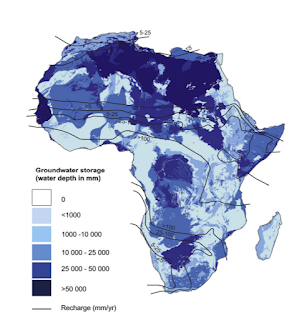Smallholder Farmers in Africa: The Case of Tanzania (Part 2)
Hi, welcome back to the second part of ‘Smallholder farmers in Africa: The case of Tanzania’! In this section, the focus will be on the empowerment and commercialization of smallholder rice farmers in Tanzania for promoting food security.
Farmers in Tanzania, despite
accounting for more than 70% of the agricultural industry, have limited
capacity to boost production and increase earnings due to their reliance on
low-tech farming techniques. Local government and community-based organizations
are offering supports and solutions to tackle such restraints.
Improvement of government policies
Tanzania's government has recognized the need of addressing these issues. The Tanzanian government launched the Agriculture Sector Development Strategy (ASDS) in 2001, followed by the Agricultural Sector Development Program (ASDP) in 2003, with the goal of enhancing agricultural productivity, profitability, and farm incomes (Vermeulen and Cotula, 2010). Recently, the government introduced projects like Kilimo Kwanza, a collection of policies and strategic interventions targeted at commercializing agriculture and improving farming methods (FSDT, 2019). This generated positive impacts for smallholder farmers
in terms of gaining market access for their agricultural produce and connections
with financial service providers.
Commercializing smallholder farmers
Agricultural commercialization
entails the progressive substitution of specialized agricultural firms with
integrated farming systems (Pingali and Rosegrant, 1995). The commercialization of smallholder farming in
Africa holds the promise of increasing farm incomes, generating additional
rural development through the employment of more labor and economic
multipliers as farmers spend increased incomes contributing to
the reduction of rural poverty. On the demand side, higher crop prices
and better access to output markets promise farmers a stable market; on the
supply side, the diffusion of improved agriculture technologies and irrigation
methods drive the commercialization process faster (Mutabazi et al., 2013). Overall,
it is observed that markets are more open to smallholder farmers in Tanzania with
better government enforcements (management of productive resources, working
rural land and labor markets) and private initiatives (locally mobilized
finances amid rural micro-finance failures) on local markets.
Farmer Field School (FFS) approach
The Farmer Field School approach is aimed to achieve integrated rice production processes and pest and disease management to increase yield. The members of FFS are educated with knowledge of industrial fertilizer applications, they become aware of urea and cow dung and clearly acknowledge the linkages between fertilizer-soil-water to avoid risks of fertilizer washes during seasonal floods. Moreover, FFS articulated the need for the construction of improved warehouses replacing the traditional storage method in Tanzania of using polythene bags for the storage of paddy, increasing the period of safe storage. The fragmented trading process with millers and brokers playing a central role in the marketing process was also tackled, there is a positive multiplier effect of smallholder farmers for agricultural inputs and outputs (Rugumamu, 2014).
In the long term, the potentials of
smallholder farmers and increase crop yield lies within the Tanzanian
government to occupy itself with the surrounding effects of climate change to help
them overcome the climatic and market constraints. There is much more potential
to increase the yield of agricultural land and crop outputs for smallholder
farmers by having further infrastructure developments, improvements in
irrigation methods and the available access of fertilizers and seeds.
From this, further questions arise regarding the use of GMOs to increase crop outputs and tackle the issue of food security in Africa. There are strong arguments and concerns over unintended consequences from genetically modified crops, this polarized debate has challenged everyone. The dilemma remains, to use or not use, GMOs?


Great read! Really detailed and informing entry. I particularly enjoyed the section writing about the FFS approach as I thoroughly agree that bottom-up education is fundamental in adapting and preparing farmers across Tanzania for future climatic changes.
回复删除